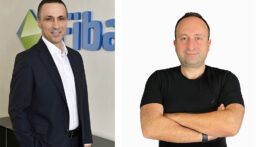Deutsche Börse’s T7 trading technology went livetoday for Xetra trading on the Frankfurt Stock Exchange, thereby putting both Xetra and Eurex derivatives trading on the same system. Eurex Exchange, the European Energy Exchange (EEX) and the Bombay Stock Exchange (BSE) already are using T7 trading technology, while Vienna Stock Exchange and the Irish Stock Exchange will soon migrate their systems to T7.
The new system reduces latency, meaning the time for order processing, even further. Harmonizing Xetra and Eurex trading technology also produces significant synergies and means lower development and maintenance costs for those participants who are active on both markets. Eurex trading participants, for instance, will benefit from easier access to Xetra, while regulatory requirements and technical updates can also be integrated into the trading system more quickly and efficiently.
“The new trading technology T7 gives investors and exchange-listed companies access to a sustainable and extremely reliable system that already has a proven track record on different international stock exchanges,” said Hauke Stars, Deutsche Börse Executive Board member responsible for Cash Market, Pre-IPO & Growth Financing. “Trading participants specifically benefit from cash market and futures trading synergies and further reduction in latencies.”
The Xetra trading platform on the Frankfurt Stock Exchange is the global reference market for German equities and the leading market for European ETF trading. Some 1,000 international equities and 1,500 exchange-traded products (ETFs, ETCs and ETNs) are currently tradable on Xetra. Order execution in continuous trading is fully automated. Designated sponsors provide additional liquidity in trading, which increases quote traffic and tightens spreads.
In 1997, Deutsche Börse heralded a new age for the stock market with its launch of the fully electronic Xetra trading system. Xetra quickly became a leading trading system worldwide and is synonymous with electronic and globalised securities trading.






